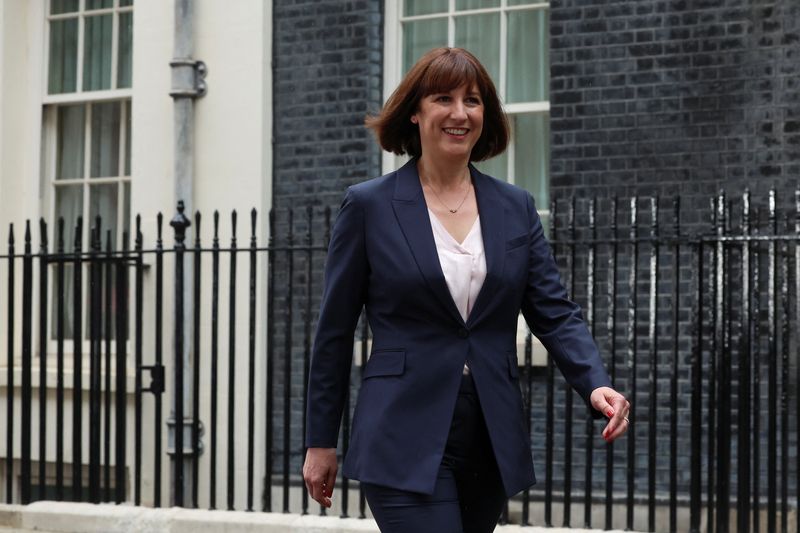Investing.com – The new Labour government delivered its first budget after 14 years in opposition, announcing the biggest tax hikes in three decades, alongside billions of pounds of extra borrowing to overhaul the UK economy.
Labour promised voters, in the runup to July’s general election, that it would cut long waiting lists in the state-run health service, build more housing and improve schools.
To pay for this additional spending, Prime Minister Keir Starmer acknowledged tax rises would be necessary.
Chancellor Rachel Reeves delivered on this, announcing to the House of Commons that this budget will raise taxes by £40 billion, saying “any chancellor standing here today” would have to do the same if they wanted to be ”responsible” and “rebuild public services.”
Reeves, the UK’s first female chancellor, announced stricter rules on inheritance tax, an increase in stamp duty, a new tax on vaping, the introduction of VAT on private school fees, an increase in air passenger duty on private jets as well as, most substantially, a hefty increase on national insurance levels that businesses must pay.
The Institute of Fiscal Studies, an independent economic research body, stated that a £40bn tax rise would be the second biggest tax-rising budget on record, behind 1991’s budget.
She also confirmed a new method for assessing the UK’s debt position, targeting Public Sector Net Financial Liabilities, which will take into account all the government’s financial assets and liabilities.
This would give the chancellor room to increase borrowing for investment in long-term infrastructure, potentially by as much as £50bn.
“The only way to deliver growth is to invest, invest, invest,” Reeves said.
This investment is set to include money for house building, research funding for engineering, biotechnology and medical science, new funding for schools, as well as a £22.6bn increase in the day-to-day health budget as well as a £31bn increase in the capital budget.
Overall, the government is set to invest £100bn in capital spending over the next five years, an amount the Office of Budget Responsibility said will increase GDP by 1.4% in the longer term.
“The Chancellor’s fiscal framework is simple: going forward, borrowing will be reorganised to drive investment and put debt-to-GDP on a more sustainable footing,” said Sanjay Raja, the Chief UK Economist at Deutsche Bank Research. “The focus now is on repairing public services and boosting investment with the aim of boosting growth.”
“For now, markets remain broadly sanguine on the Chancellor’s plans,” he said. “But today’s Budget signals a lot more gilt issuance to come, relative to previous expectations. With public spending pressures only likely to increase from here, the Chancellor will be walking a tight rope between even more tax hikes and/or cuts to spending to ensure she does not fall foul of her newly designed fiscal charter.”

